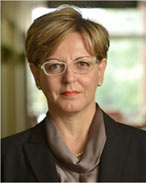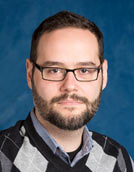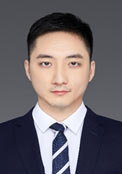- Our Story
- Publications & Resources
- Publications & Resources
- Publications
- IEEE Signal Processing Magazine
- IEEE Journal of Selected Topics in Signal Processing
- IEEE Signal Processing Letters
- IEEE Transactions on Computational Imaging
- IEEE Transactions on Image Processing
- IEEE Transactions on Information Forensics and Security
- IEEE Transactions on Multimedia
- IEEE Transactions on Signal and Information Processing over Networks
- IEEE Transactions on Signal Processing
- IEEE TCI
- IEEE TSIPN
- Data & Challenges
- Submit Manuscript
- Guidelines
- Information for Authors
- Special Issue Deadlines
- Overview Articles
- Top Accessed Articles
- SPS Newsletter
- SigPort
- SPS Resource Center
- Publications FAQ
- Blog
- News
- Dataset Papers
- Conferences & Events
- Community & Involvement
- Professional Development
- For Volunteers
- Information for Authors-OJSP
-
Home
Conferences Events IEEE Signal Processing Magazine IEEE SPL Article IEEE TIFS Article IEEE TMM Article IEEE TSP Article Jobs in Signal Processing Lectures Machine Learning Seasonal Schools Signal Processing News SPM Article SPS Distinguished Lectures SPS Newsletter Article SPS Webinar SPS Webinars SPS Webinar Series Webinar webinars
-
Our Story
What is Signal Processing?

The technology we use, and even rely on, in our everyday lives –computers, radios, video, cell phones – is enabled by signal processing. Learn More » -
Publications & Resources
-
SPS Resources
- Signal Processing Magazine The premier publication of the society.
- SPS Newsletter Monthly updates in Signal Processing
- SPS Resource Center Online library of tutorials, lectures, and presentations.
- SigPort Online repository for reports, papers, and more.
- SPS Feed The latest news, events, and more from the world of Signal Processing.
-
SPS Resources
-
Conferences & Events
-
Community & Involvement
-
Membership
- Join SPS The IEEE Signal Processing Magazine, Conference, Discounts, Awards, Collaborations, and more!
- Chapter Locator Find your local chapter and connect with fellow industry professionals, academics and students
- Women in Signal Processing Networking and engagement opportunities for women across signal processing disciplines
- Students Scholarships, conference discounts, travel grants, SP Cup, VIP Cup, 5-MICC
- Young Professionals Career development opportunities, networking
- Get Involved
-
Technical Committees
- Applied Signal Processing Systems
- Audio and Acoustic Signal Processing
- Bio Imaging and Signal Processing
- Computational Imaging
- Image Video and Multidimensional Signal Processing
- Information Forensics and Security
- Machine Learning for Signal Processing
- Multimedia Signal Processing
- Sensor Array and Multichannel
- Signal Processing for Communication and Networking
- Signal Processing Theory and Methods
- Speech and Language Processing
- Technical Working Groups
- More TC Resources
-
Membership
-
Professional Development
-
Professional Development
- Signal Processing Mentorship Academy (SigMA) Program
- Micro Mentoring Experience Program (MiME)
- Distinguished Lecturer Program
- Distinguished Lecturers
- Distinguished Lecturer Nominations
- Past Lecturers
- Distinguished Industry Speaker Program
- Distinguished Industry Speakers
- Distinguished Industry Speaker Nominations
- Industry Resources
- IEEE Training Materials
- Jobs in Signal Processing: IEEE Job Site
-
Career Resources
- SPS Education Program Educational content in signal processing and related fields.
- Distinguished Lecturer Program Chapters have access to educators and authors in the fields of Signal Processing
- Job Opportunities Signal Processing and Technical Committee specific job opportunities
- Job Submission Form Employers may submit opportunities in the area of Signal Processing.
-
Professional Development
-
For Volunteers
-
For Board & Committee Members
- Board Agenda/Minutes* Agendas, minutes and supporting documentation for Board and Committee Members
- SPS Directory* Directory of volunteers, society and division directory for Board and Committee Members.
- Membership Development Reports* Insight into the Society’s month-over-month and year-over-year growths and declines for Board and Committee Members
-
For Board & Committee Members
Popular Pages
Today's:
- Information for Authors
- (ICME 2026) 2026 IEEE International Conference on Multimedia and Expo
- Submit a Proposal for ICASSP 2030
- IEEE Transactions on Information Forensics and Security
- Access Restricted
- Submit a Manuscript
- IEEE Transactions on Multimedia
- Conference Call for Papers
- Information for Authors-SPL
- IEEE Transactions on Image Processing
- IEEE Signal Processing Letters
- IEEE Journal of Selected Topics in Signal Processing
- IEEE Transactions on Signal Processing
- (ASRU 2025) 2025 IEEE Automatic Speech Recognition and Understanding Workshop
- Unified EDICS
All time:
- Information for Authors
- Submit a Manuscript
- IEEE Transactions on Image Processing
- IEEE Transactions on Information Forensics and Security
- IEEE Transactions on Multimedia
- IEEE Transactions on Audio, Speech and Language Processing
- IEEE Signal Processing Letters
- IEEE Transactions on Signal Processing
- Conferences & Events
- IEEE Journal of Selected Topics in Signal Processing
- Information for Authors-SPL
- Conference Call for Papers
- Signal Processing 101
- IEEE Signal Processing Magazine
- Guidelines
Last viewed:
- IEEE Transactions on Image Processing
- Information for Authors
- Signal Processing 101
- Access Restricted
- Membership
- Submit a Manuscript
- Associative Pattern Recognition for Biological Regulation Data
- Editorial Board
- IEEE Transactions on Information Forensics and Security
- Call for Proposals: (SLT 2026) 2026 IEEE Workshop on Spoken Language Technology
- Teaching Digital Signal Processing by Partial Flipping, Active Learning, and Visualization: Keeping Students Engaged With Blended Teaching
- Information for Authors-SPL
- IEEE Transactions on Signal Processing
- Guidelines for Reviewers
- Call for Papers
SPS Webinar: 7 June 2022, presented by Dr. Athina Petropulu, Dr. Christos Masouros, and Dr. Fan Liu
You are here
Newsletter Menu
Newsletter Categories
Top Reasons to Join SPS Today!
1. IEEE Signal Processing Magazine
2. Signal Processing Digital Library*
3. Inside Signal Processing Newsletter
4. SPS Resource Center
5. Career advancement & recognition
6. Discounts on conferences and publications
7. Professional networking
8. Communities for students, young professionals, and women
9. Volunteer opportunities
10. Coming soon! PDH/CEU credits
Click here to learn more.
News and Resources for Members of the IEEE Signal Processing Society
SPS Webinar: 7 June 2022, presented by Dr. Athina Petropulu, Dr. Christos Masouros, and Dr. Fan Liu
Upcoming SPS Webinar!
Title: Optimal Waveform Design for Dual-functional Radar-Communications: From Theory to Experiments
Date: 7 June 2022
Time: 9:00 AM Eastern (New York time)
Duration: Approximately 1 Hour
Presenters: Dr. Athina Petropulu, Dr. Christos Masouros, Dr. Fan Liu
Based on the IEEE Xplore® article: Toward Dual-functional Radar-Communication Systems: Optimal Waveform Design
Published: IEEE Transactions on Information Forensics and Security, IEEE Transactions on Signal Processing, June 2018 available in IEEE Xplore®
Download: The riginal is Open Access and available for free download.

Abstract:
As the standardization of 5G gradually solidifies, researchers are speculating what 6G will be. One common theme is that radio sensing functionality would be integrated into 6G networks in a low-cost and fast manner. Therefore, the future cellular network could image and measure the surrounding environment to enable advanced location-aware services, ranging from the physical layer to application layers. This type of research is typically referred to as Integrated Sensing and Communication (ISAC).
In this webinar, we will introduce our recent results on optimal dual-functional radar-communications (DFRC) waveform design, which is regarded as a key enabler for the practical implementation of ISAC. DFRC waveforms are specifically tailored signals that are able to accomplish sensing and communication signaling tasks simultaneously. We will commence by introducing the background and applications of ISAC. Then we focus on a general DFRC transmission scenario, where a single MIMO base station (BS) communicates with downlink cellular users and detects radar targets simultaneously. Several design criteria will be discussed for minimizing the downlink multi-user interference (MUI) under radar-specific constraints, namely, omni- and directional beampattern constraints, similarity constraint, and constant-modulus constraint. Finally, we will verify the proposed waveform design approaches through both simulation and experimental results based on the software-defined radio (SDR) platform.
Biography:

Athina Petropulu (Fellow, IEEE) is currently a Distinguished Professor with the Department of Electrical and Computer Engineering, Rutgers University, New Brunswick, NJ, USA, and was the Chair of the Department during 2010–2016. Prior to joining Rutgers University, she was a professor of electronics and communication engineering with Drexel University, Philadelphia, PA, USA, during 1992–2010. She held Visiting Scholar appointments with SUPELEC, Universite' Paris Sud, Orsay, France, Princeton University, Princeton, NJ, USA, and University of Southern California, Los Angeles, CA, USA.
Her research interests include statistical signal processing, wireless communications, signal processing in networking, physical layer security, and radar signal processing. Her research has been funded by various government industry sponsors, including the National Science Foundation, Office of Naval research, U.S. Army, National Institute of Health, Whitaker Foundation, Lockheed Martin, and Raytheon.
Dr. Petropulu is Fellow of the American Association for the Advancement of Science. She is 2022-2023 President of the IEEE Signal Processing Society and 2020-2021 President-Elect of IEEE SPS. She was the Editor-in-Chief of the IEEE Transactions on Signal Processing during 2009–2011 and the IEEE Signal Processing Society Vice President-Conferences during 2006–2008. She was the General Chair of the 2020 and 2021 IEEE SPS PROGRESS Workshops, the General Co-Chair of the 2018 IEEE International Workshop on Signal Processing Advances in Wireless Communications, Kalamata Greece, and the Genera Chair of the 2005 International Conference on Acoustics Speech and Signal Processing, Philadelphia, PA, USA. She was a Distinguished Lecturer of the Signal Processing Society from 2017 to 2018 and is currently a Distinguished Lecturer of the IEEE Aerospace and Electronics Systems Society. She was the recipient of the 1995 Presidential Faculty Fellow Award given by NSF and the White House, 2012 IEEE Signal Processing Society Meritorious Service Award, and co-recipient of the 2005 IEEE Signal Processing Magazine Best Paper Award, 2020 IEEE Signal Processing Society Young Author Best Paper Award (B. Li), 2021 IEEE Signal Processing Society Young Author Best Paper Award (F. Liu), and 2021 Barry Carlton Best Paper Award by IEEE Aerospace and Electronic Systems Society.

Christos Masouros (Senior Member, IEEE) received the Diploma degree in Electrical and Computer Engineering from the University of Patras, Greece, in 2004, and the M.Sc. degree (by research) and Ph.D. degree in electrical and electronic engineering from the University of Manchester, UK, in 2006 and 2009, respectively.
In 2008, he was a research intern at Philips Research Labs, UK. Between 2009-2010, he was a Research Associate in the University of Manchester and between 2010-2012, a Research Fellow in Queen's University Belfast. In 2012, he joined University College London as a Lecturer. He has held a Royal Academy of Engineering Research Fellowship between 2011-2016. He is a Full Professor of Signal Processing and Wireless Communications in the Information and Communication Engineering research group, Department of Electrical and Electronic Engineering, and affiliated with the Institute for Communications and Connected Systems, University College London since 2019. His research interests lie in the field of wireless communications and signal processing with particular focus on green communications, large scale antenna systems, integrated sensing and communications, interference mitigation techniques for MIMO, and multicarrier communications.
Dr. Masouros was the co-recipient of the 2021 IEEE SPS Young Author Best Paper Award. He was the recipient of the Best Paper Awards in the IEEE GlobeCom 2015 and IEEE WCNC 2019 conferences and has been recognized as an Exemplary Editor for the IEEE Communications Letters, and as an Exemplary Reviewer for the IEEE Transactions on Communications. He is an Editor for IEEE Transactions on Wireless Communications, the IEEE Open Journal of Signal Processing, and Editor-at-Large for IEEE Open Journal of the Communications Society. He has been an Editor for IEEE Transactions on Communications, IEEE Communications Letters, and a Guest Editor for several IEEE Journal on Selected Topics in Signal Processing and IEEE Journal on Selected Areas in Communications issues. He is a founding member and Vice-Chair of the IEEE Emerging Technology Initiative on Integrated Sensing and Communications, Vice Chair of the IEEE Special Interest Group on Integrated sensing and communications (ISAC), and Chair of the IEEE Special Interest Group on Energy Harvesting Communication Networks.

Fan Liu (Member, IEEE) is currently an Assistant Professor of the Department of Electronic and Electrical Engineering, Southern University of Science and Technology (SUSTech). He received the Ph.D. and B.Eng. degrees from Beijing Institute of Technology (BIT), Beijing, China, in 2018 and 2013, respectively.
He has previously held academic positions in the University College London (UCL), first as a Visiting Researcher from 2016 to 2018, and then as a Marie Curie Research Fellow from 2018 to 2020. His research interests include the general area of signal processing and wireless communications, and in particular, in the area of Integrated Sensing and Communications (ISAC).
Dr. Liu has 10 publications selected as IEEE ComSoc Best Readings in ISAC. He is the Founding Academic Chair of the IEEE ComSoc ISAC Emerging Technology Initiative (ISAC-ETI), an Associate Editor for the IEEE Communications Letters and the IEEE Open Journal of Signal Processing, a Guest Editor of several special issues in the IEEE Journal on Selected Areas in Communications, IEEE Wireless Communications, China Communications, and the Journal of Communications and Information Networks. He was also an organizer and Co-Chair for numerous workshops, special sessions and tutorials in flagship IEEE conferences, including ICC, GLOBECOM, ICASSP, and SPAWC. He is the TPC Co-Chair of the 2nd IEEE Joint Communication and Sensing Symposium (JC&S), the Workshop and Special Session Co-Chair of the ISWCS 2022 and will serve as a Track Co-Chair for the IEEE WCNC 2024. He is a Member of the IMT-2030 (6G) ISAC Task Group. He was listed in the World's Top 2% Scientists by Stanford University for citation impact in 2021. He was also the recipient of the IEEE Signal Processing Society Young Author Best Paper Award of 2021, the Best Ph.D. Thesis Award of Chinese Institute of Electronics of 2019, the EU Marie Curie Individual Fellowship in 2018, and has been named as an Exemplary Reviewer for IEEE TWC/TCOM/COMML five times.
Open Calls
| Nomination/Position | Deadline |
|---|---|
| Call for Nominations for the SPS Chapter of the Year Award | 15 October 2025 |
| Call for Papers for 2026 LRAC Workshop | 22 October 2025 |
| Submit Your 2026 ICASSP Workshop Paper | 22 October 2025 |
| Submit a Proposal for ICASSP 2030 | 31 October 2025 |
| Call for Project Proposals: IEEE SPS SigMA Program - Signal Processing Mentorship Academy | 2 November 2025 |
| Submit Your Proposals for 2026 Member-Driven Initiatives | 21 November 2025 |
| IEEE Signal Processing Society Annual Election Opens on 17 October | 4 December 2025 |
Education & Resources
Technical Committee News
Society News
Member Highlights
SPS Social Media
- IEEE SPS Facebook Page https://www.facebook.com/ieeeSPS
- IEEE SPS X Page https://x.com/IEEEsps
- IEEE SPS Instagram Page https://www.instagram.com/ieeesps/?hl=en
- IEEE SPS LinkedIn Page https://www.linkedin.com/company/ieeesps/
- IEEE SPS YouTube Channel https://www.youtube.com/ieeeSPS
Home | Sitemap | Contact | Accessibility | Nondiscrimination Policy | IEEE Ethics Reporting | IEEE Privacy Policy | Terms | Feedback
© Copyright 2025 IEEE - All rights reserved. Use of this website signifies your agreement to the IEEE Terms and Conditions.
A public charity, IEEE is the world's largest technical professional organization dedicated to advancing technology for the benefit of humanity.








